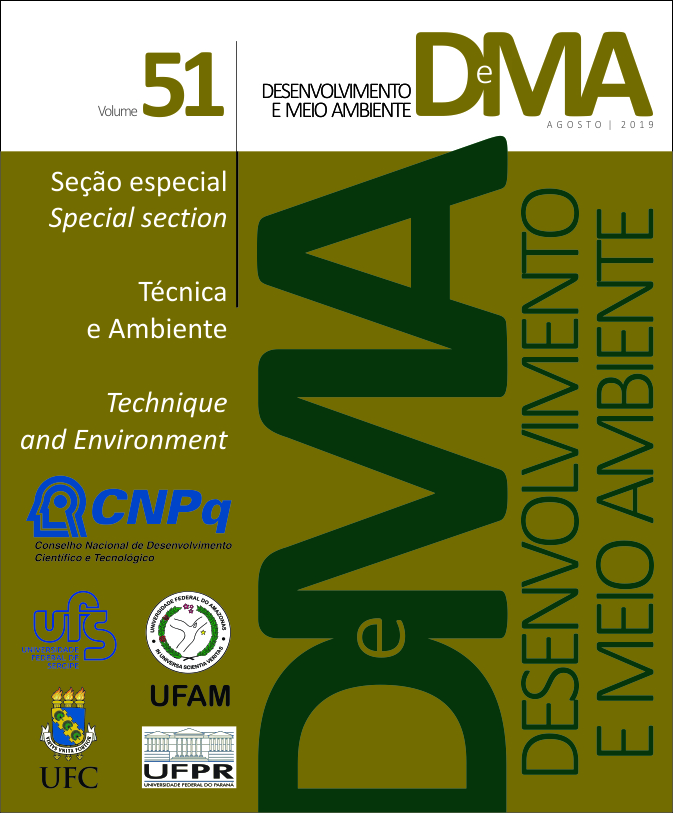Dependência e expropriação estatal de terras no contexto neodesenvolvimentista/neoextrativista: implicações para a reprodução das comunidades afetadas pelo mineroduto Minas-Rio e o Complexo Portuário do Açu
DOI:
https://doi.org/10.5380/dma.v51i0.60670Palavras-chave:
dependência externa, desapropriação de terras, grandes empreendimentos, famílias e comunidades rurais, vulnerabilidadeResumo
Com 1.121 desapropriações para a construção do mineroduto Minas-Rio e 1,5 mil famílias desapropriadas para a construção do Complexo Portuário do Açu, adicionando o impacto em sistemas aquáticos, com degradação, aumento da demanda, salinização e suspensão do abastecimento público por despejos de minério de ferro, esses grandes empreendimentos produzem efeitos socioambientais deletérios. Isso se dá em um modelo de desenvolvimento econômico baseado na exportação de commodities agrícolas, minerárias e energéticas, em que minerodutos e portos formam estruturas de integração à cadeia global que buscam assegurar a reprodução do grande capital, ao mesmo tempo em que em escala local afetam a reprodução social de famílias e comunidades que habitam os territórios escolhidos para sediar tais empreendimentos. Ao analisar a dependência econômica do Brasil nos marcos do neodesenvolvimentismo/neoextrativismo, este artigo procura identificar nexos entre esses empreendimentos e o modelo de desenvolvimento econômico que expliquem os determinantes dos impactos que afetam a reprodução sociofamiliar e comunitária, por meio de uma pesquisa bibliográfica e de um levantamento de documentos oficiais. A principal conclusão das análises realizadas é de que os impactos à reprodução social em territórios que desenvolvem práticas e modos de vida tradicionais decorrem da opção de adotar uma estratégia de desenvolvimento econômico que leva ao aprofundamento da dependência econômica externa e ao agravamento das vulnerabilidades sociais e ambientais em escala local.
Downloads
Publicado
Como Citar
Edição
Seção
Licença
Os Direitos Autorais sobre trabalhos publicados nesta revista são do autor, com direitos de primeira publicação para a revista. O conteúdo dos trabalhos publicados é de inteira responsabilidade dos autores. A DMA é um periódico de acesso aberto (open access), e adota a licença Creative Commons Atribuição 4.0 Não Adaptada (CC-BY), desde janeiro de 2023. Portanto, ao serem publicados por esta Revista, os artigos são de livre uso para compartilhar (copiar e redistribuir o material em qualquer suporte ou formato para qualquer fim, mesmo que comercial) e adaptar (remixar, transformar, e criar a partir do material para qualquer fim, mesmo que comercial). É preciso dar o crédito apropriado, prover um link para a licença e indicar se mudanças foram feitas.
Os conteúdos publicados pela DMA do v. 53 de 2020 ao v. 60 de 2022 são protegidos pela licença Creative Commons Atribuição – Não Comercial – Sem Derivações 4.0 Internacional.
A DMA é uma revista de acesso aberto desde a sua criação, entretanto, do v.1 de 2000 ao v. 52 de 2019, o periódico não adotava uma licença Creative Commons e, portanto, o tipo de licença não é indicado na página inicial dos artigos.




